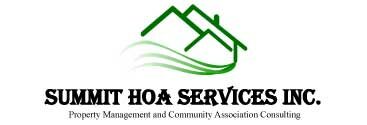CCIOA requires the association to “maintain accurate and complete accounting records.” In 2005 CCIOA was amended to require associations to conduct their accounting according to Generally Accepted Accounting Principles (GAAP). A year later, this provision was removed as being too “complicated, cost-prohibitive and unnecessary for most associations”, according to attorneys HindmanSanchez. Nevertheless, healthy finances are critical to the overall health of the association so certain minimum elements of GAAP should not be ignored.
As the financial voice of the community and the internal auditor of its financial operations, the Treasurer’s responsibilities will at least include:
- Maintaining, and retaining, accurate and consistent accounting records.
- Ensuring the association’s financial assets are secure, with adequate internal controls implemented and followed.
- Preparing financial reports in accordance with generally accepted practices to include the accrual basis of accounting, full presentation of financial statements, and separate fund balances.
- Preparing the annual operating and reserve budget, where the latter agrees to and supports the former.
- Directing the budgeting process through board approval to member ratification.
- Collecting assessments, monitoring delinquencies and invoking collection remedies.
- Examining and approving invoices prior to payment.
- Developing and maintaining a formal long-term major capital expenditure program. This requires a clear understanding of the purpose and need for replacement reserves.
- Identifying and soliciting loans on behalf of the association.
- Developing and adhering to a formal investment policy that ensures safety, liquidity and yield.
- Liaising with association’s financial advisors, such as accountant, tax preparer, auditor, and investment specialist.
- Submitting financial status outlines at board and owner meetings. Financial resolutions may be prepared in advance for board meetings.
- Distributing appropriate financial reports to membership as required by the governing documents and by Colorado law.
The Treasurer may, under the authority of the board, delegate certain tasks, such as bookkeeping, but must still maintain responsibility for the execution of those tasks.
As with other officer positions, the Treasurer has a fiducuary duty to always act within the scope of authority, in the best interests of the association, without discrimination, and in compliance with the standard of conduct, or code of ethics, as adopted by the association. Duties must be performed with the utmost professionalism and concern for the association, its members and contractors.
